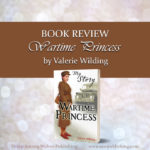Dear Reader: What About Romance?
 Dear Reader,
Dear Reader,
What about romance? Yes, go ahead—squirm a little, and get it out of your system. It’s one of the trickiest topics in the world of books. One of the most embarrassing. And one of the most necessary to talk about!
Because, dear reader, you are not a little girl anymore. Your books aren’t little girl books. Somewhere along the way (oh, help! It was by the time you picked up middle-grade novels, wasn’t it?) you started to find a new thread in your reading material. It was a thread that maybe embarrassed you—maybe intrigued you—but either way, had an unquestionable power, both over the story and over you, the reader. God made it that way. God made you that way.
Because the thread was called romance. And it is yet another facet of navigating the world—and books.
Romance vs. Romances
Let’s start with some literary definitions. (Yes, girl, you can relax a tiny bit, and we’ll cover some unemotional, technical stuff first!)
Originally, the word “romance” was a description of a tale of adventure—a fabulous, improbable, fictitious tale of adventure, but not necessarily a tale about love.
Over time, the application narrowed to define a story built around the specific kind of love that God created to exist between a man and a woman, ultimately in marriage. And that leaves us with the two definitions of the word that exist in the world of books today.
When we speak of romance in literature we are referring to a plot device/content label built around this concept of love between genders.
By extension:
When we speak of a romance (or in the plural, romances) we are talking about a genre in which the main/entire focus of the plot and content centre around this type of love.
Sounds simple? Well, going to Washington, D.C., and then discussing America’s first president sounded simple, too! In point of fact, discussions about romance/romances can get incredibly confusing (just as discussing Washington in Washington can!) because of this overlap of terms. In this post, I am mainly discussing romance (definition one)—although most of the principles could also be applied to romances (definition two).
 Is Romance Good or Bad?
Is Romance Good or Bad?
Yes, you want it to be black and white! Who doesn’t? It’d be so much easier if we could either open the door wide, or slam it satisfyingly in somebody’s face. (Wow! This author is getting dramatic today.)
But I think we can all resonate with the longing for a clear-cut answer. Is romance—in fiction—a good thing, or a bad one? Does it get to come in, or should it stay out in the cold?
And the truly shocking thing that I’m about to say, is that romance, as a literary tool, is morally neutral.
I was going to say romance, period, in or out of fiction, is morally neutral. But in light of the fact that it was specifically designed and blessed by God, I think we are compelled to go further than that, and say it is “very good.” (Genesis 1:27-31) But, like all very good things, it can be used in helpful and in harmful ways. Let’s take a look at both, as they apply to the books we choose to read.
Romance that Helps You
We all need role models in life. Ultimately, Christ is our perfect role model, but following in the footsteps of godly believers is something the Bible points out to us, too. (1 Corinthians 11:1) One of the most compelling reasons for including romance in literature, is to provide positive role models of what healthy, God-honouring romance looks like in the real world.
Romance that challenges us to seek spiritually-based relationships, to live holy, unselfish lives, and to reflect God’s love for humanity through the love of dedicated believers, is extremely valuable!
We all have questions about navigating romance—and upright, conscientiously-written fiction can be a wonderful way to find some of those questions answered, both on a theoretical level, and a practical one.
Romance that Hurts You
For the very reason that romance is powerful, Satan is eager to use it to lead the believer astray. Romance that leads to unholy, or all-consuming thoughts, that excuses wrongdoing, or that creates a world in which human love is the main objective of life, can be incredibly harmful.
And this is why almost all Christian readers have discovered that they need boundary lines in their reading. Which is where the topic gets tricky. Because not every person’s boundaries are (or even need to be) in the same place. In fact, not every person’s boundaries need to be in the same place, all the time.
Living is a work in progress! A book that is a harmful temptation at sixteen might be entirely innocent at thirty. Or, shockingly, a book that didn’t do you any harm when you were a ten-year-old might be an unwise read a few years later. I have, personally, wasted a great deal of emotional energy trying to decide whether or not to purge certain books from my bookshelf, only to discover years later that what I actually needed was to set a book aside for a while—rather than make a decision about it, one way or the other, for all time.
I say that cautiously. There are books which no Christian should read, ever. There are books which you, personally, should not read, ever. But there are also books that are helpful, sometimes, and harmful at other times. Seek to discover which books are helping, and which are harming, your spiritual life right now, today—and to reflect that knowledge in your reading choices.
Navigating Romance with Grace
Yes, I am writing this post. And I’m torn between the desire to smirk and the desire to cringe when I think about my family reading it. Not because I’m ashamed of the things I’ve said. But because my family knows full well that navigating the topic of romance is not my area of greatest talent.
They know, in fact, that I am the author who prefers to run screaming from the building when the topic surfaces at all.
Navigating romance with grace may be a lifetime work-in-progress for some of us. We may be continually tottering between the attraction which romance naturally has for the vast majority of women God created—and the guilt and terror of letting that attraction damage our spiritual lives.
But, dear reader, I want to remind you that you’re not alone. Growing up is tough. Navigating romance is tough. Toughest of all, because even the people you love and respect aren’t able to hand you a step-by-step checklist for getting through it without making mistakes.
Take your doubts and your questions to God. Remember that He made you. He made romance. He wants to walk beside you, as you navigate it both in fiction, and in the real world.
He doesn’t want you to wait till you have it all figured out.
He wants to journey with you, today.
You might also enjoy:

One of the striking things about growing up is that the author begins addressing the preface to you. And the words they write, for better or worse, are going to shape the girl you become. The Dear Reader series makes this rocky road a little easier.

The close-knit community of Homewood, Minnesota might not even be a dot on most maps. But from its earliest settlement to the present day, a warm Christmas welcome and a shining Moravian star have been its hallmarks of the holiday. If you love clean, heartwarming Christian Christmas stories, then A Homewood Christmas is definitely for you!

WWII changed life for everyone in 1940s Britain—from Blitz-shaken Londoners to the two young Princesses hidden in Windsor Castle. In Wartime Princess Valerie Wilding gives us Margaret Rose’s first-person story.

